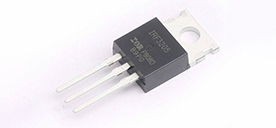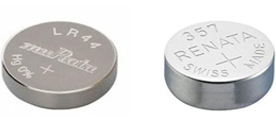Comparing car gauge resistors and ordinary resistors
2024/4/30 12:22:29
Views:
In the field of science and technology, resistors are basic components in circuits, and their performance and application range are directly related to the stability and efficiency of the entire circuit. Among the many types of resistors, automotive grade resistors and ordinary resistors are particularly important due to their unique characteristics and applicable scenarios. The purpose of this article is to deeply explore the differences and characteristics of car-grade resistors and ordinary resistors in scientific and technological applications, aiming to provide readers with a more comprehensive understanding.
In terms of temperature characteristics, automotive grade resistors have significant advantages. Due to the complex and changeable working environment of automobiles and the wide range of temperature changes, the temperature coefficient of car-grade resistors is relatively small, which means that the resistance value changes slowly with temperature changes, thus ensuring the stable operation of the circuit. In addition, car-grade resistors also have high voltage resistance and load capacity, and can withstand various abnormal conditions that may occur in automobile circuits to ensure the normal operation of the circuit.
In terms of electrical characteristics, car-grade resistors also perform well. It has strong anti-interference ability and can effectively resist external electromagnetic interference and radiation and prevent circuit damage. At the same time, automotive grade resistors are also resistant to climate change and can maintain stable performance output regardless of severe cold or heat. These characteristics make automotive grade resistors widely used in key areas such as automotive electronic control systems, sensor circuits, and power management circuits.
Ordinary resistors: the stable cornerstone of general circuits
In an AC or DC circuit, ordinary resistors act equally as a hindrance to the flow of electricity. This characteristic makes resistors play an important role in circuit analysis. In addition, ordinary resistors also have the characteristic that the resistance value does not change in a sine wave alternating current circuit, and the resistance value does not change due to different frequencies of the alternating current. This feature allows ordinary resistors to play a stable role in many types of signal processing and amplification circuits.
However, ordinary resistors may exhibit limitations in certain special circumstances. For example, in high or low temperature environments, the performance of ordinary resistors may be affected, causing the resistance value to change, thereby affecting the stability of the circuit. In addition, ordinary resistors have relatively low voltage resistance and load capacity and may not be able to withstand the high voltage or large current in some special circuits.
Car-grade resistors and ordinary resistors: differences and choices in application scenarios
There are obvious differences in application scenarios between car-grade resistors and ordinary resistors. Car-grade resistors are known for their high precision, high stability and high reliability, and are mainly used in automotive electronic circuits, such as control systems, sensor circuits and power management circuits. These circuits have extremely high performance requirements for the resistors, which must be able to cope with various challenges in the automotive environment and ensure stable operation of the circuit.
Ordinary resistors are more suitable for use in general circuits. Ordinary resistors can satisfy the basic circuit requirements of any device, be it industrial, office, or home-based. In some cases where accuracy and stability are not required, ordinary resistors are the first choice due to their low cost and easy availability.
The particular application scenario and requirements must be taken into consideration while choosing a resistor. For circuits that require high precision, high stability and high reliability, car-grade resistors should be selected; while for general circuits, ordinary resistors are sufficient to meet the needs. At the same time, factors such as the temperature characteristics, voltage resistance, load capacity, and anti-interference ability of the resistor also need to be considered to ensure the stability and reliability of the circuit.
Summary and Outlook
Car-grade resistors and ordinary resistors are two important types of resistors in scientific and technological applications, each with unique characteristics and application scenarios. Vehicle-grade resistors are known for their high precision, high stability and high
Reliability plays a key role in automotive electronic circuits, and ordinary resistors dominate general circuits due to their low cost and easy availability.
The uses for resistors are growing steadily along with science and technology's ongoing advancements. In the future, we can expect more high-performance, high-precision, and high-reliability resistor types to appear to meet various complex and special circuit needs. At the same time, with the rapid development of new energy vehicles, smart driving and other fields, the demand for car-grade resistors will continue to grow, providing strong support for the development of the automotive electronics industry.
To sum up, car-grade resistors and ordinary resistors each have their own advantages and characteristics in scientific and technological applications. By thoroughly comprehending its functionality and potential applications, we can more effectively choose and employ the right kind of resistor to strongly ensure the circuit's stability and dependability.


In terms of temperature characteristics, automotive grade resistors have significant advantages. Due to the complex and changeable working environment of automobiles and the wide range of temperature changes, the temperature coefficient of car-grade resistors is relatively small, which means that the resistance value changes slowly with temperature changes, thus ensuring the stable operation of the circuit. In addition, car-grade resistors also have high voltage resistance and load capacity, and can withstand various abnormal conditions that may occur in automobile circuits to ensure the normal operation of the circuit.
In terms of electrical characteristics, car-grade resistors also perform well. It has strong anti-interference ability and can effectively resist external electromagnetic interference and radiation and prevent circuit damage. At the same time, automotive grade resistors are also resistant to climate change and can maintain stable performance output regardless of severe cold or heat. These characteristics make automotive grade resistors widely used in key areas such as automotive electronic control systems, sensor circuits, and power management circuits.
Ordinary resistors: the stable cornerstone of general circuits

In an AC or DC circuit, ordinary resistors act equally as a hindrance to the flow of electricity. This characteristic makes resistors play an important role in circuit analysis. In addition, ordinary resistors also have the characteristic that the resistance value does not change in a sine wave alternating current circuit, and the resistance value does not change due to different frequencies of the alternating current. This feature allows ordinary resistors to play a stable role in many types of signal processing and amplification circuits.
However, ordinary resistors may exhibit limitations in certain special circumstances. For example, in high or low temperature environments, the performance of ordinary resistors may be affected, causing the resistance value to change, thereby affecting the stability of the circuit. In addition, ordinary resistors have relatively low voltage resistance and load capacity and may not be able to withstand the high voltage or large current in some special circuits.
Car-grade resistors and ordinary resistors: differences and choices in application scenarios
There are obvious differences in application scenarios between car-grade resistors and ordinary resistors. Car-grade resistors are known for their high precision, high stability and high reliability, and are mainly used in automotive electronic circuits, such as control systems, sensor circuits and power management circuits. These circuits have extremely high performance requirements for the resistors, which must be able to cope with various challenges in the automotive environment and ensure stable operation of the circuit.
Ordinary resistors are more suitable for use in general circuits. Ordinary resistors can satisfy the basic circuit requirements of any device, be it industrial, office, or home-based. In some cases where accuracy and stability are not required, ordinary resistors are the first choice due to their low cost and easy availability.
The particular application scenario and requirements must be taken into consideration while choosing a resistor. For circuits that require high precision, high stability and high reliability, car-grade resistors should be selected; while for general circuits, ordinary resistors are sufficient to meet the needs. At the same time, factors such as the temperature characteristics, voltage resistance, load capacity, and anti-interference ability of the resistor also need to be considered to ensure the stability and reliability of the circuit.
Summary and Outlook
Car-grade resistors and ordinary resistors are two important types of resistors in scientific and technological applications, each with unique characteristics and application scenarios. Vehicle-grade resistors are known for their high precision, high stability and high
Reliability plays a key role in automotive electronic circuits, and ordinary resistors dominate general circuits due to their low cost and easy availability.
The uses for resistors are growing steadily along with science and technology's ongoing advancements. In the future, we can expect more high-performance, high-precision, and high-reliability resistor types to appear to meet various complex and special circuit needs. At the same time, with the rapid development of new energy vehicles, smart driving and other fields, the demand for car-grade resistors will continue to grow, providing strong support for the development of the automotive electronics industry.
To sum up, car-grade resistors and ordinary resistors each have their own advantages and characteristics in scientific and technological applications. By thoroughly comprehending its functionality and potential applications, we can more effectively choose and employ the right kind of resistor to strongly ensure the circuit's stability and dependability.
Related Information
-
-
Phone
+86 135 3401 3447 -
Whatsapp





